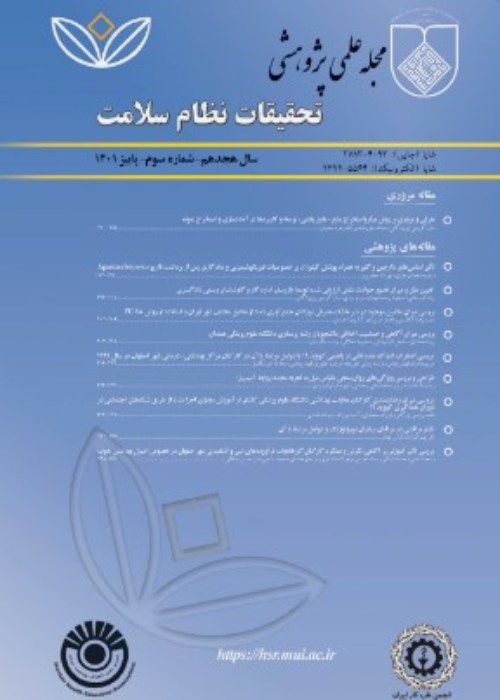Factors Associated with the Fecal Occult Blood Testing for Colorectal Cancer Screening based on Health Belief Model Structures in Moderate Risk Individuals, Isfahan, 2011
Colorectal cancer is one of the most important and most common cancers and the second leading cause of cancer deaths worldwide. Every year, nearly one million new cases of colorectal cancer are recognized around the world and nearly half of them lose their lives due to the disease. According to statistics about the shocking incidence and mortality rates of colorectal cancer, secondary prevention of this type of cancer is important. Research has shown 90% of early diagnosed patients to be curable. Among the colorectal cancer screening tests, the fecal occult blood test (FOBT) is prefered because of its convenience and low cost. However, due to various reasons, people are not willing to do this screening test. The goal of this study was to assess the factors that affect participating in colorectal cancer screening programs in the moderate risk population, based on health belief model structures.
A cross-sectional survey of 196 individuals more than 50 years old was conducted in Isfahan. Ninty-eight individuals of the target group were randomly selected from laboratories when they refered to do FOBT (Group A). Cluster sampling was used to collect data from the other 98 individuals (Group B) who were home interviewed. A questionnaire based on health belief model was used to assess the factors associated with performing FOBT. The data collected were analyzed using descriptive and inferential statistics.
The mean score of knowledge in the first and second groups were 48.5 ± 11.7 and 36.5 ± 19.3, respectively. Individuals in the first group were more likely to be married, had more years of schooling and better financial status. There were significant relationships between knowledge (P < 0.001), perceived susceptibility (P < 0.001), perceived severity (p < 0.001), perceived barriers (P < 0.001), and self-efficacy (P < 0.001) in the two groups. However, there was no significant association between perceived benefits in the two groups. Subjects that had FOBT in the past year in each group reported better scores of HBM.
According to this study, it seems that there is an urgent need to pay more attention to colorectal cancer and its prevention through screening. A better understanding of factors affecting FOBT can be a useful step to reduce rate of death and costs, and also to improve community health outcomes.
- حق عضویت دریافتی صرف حمایت از نشریات عضو و نگهداری، تکمیل و توسعه مگیران میشود.
- پرداخت حق اشتراک و دانلود مقالات اجازه بازنشر آن در سایر رسانههای چاپی و دیجیتال را به کاربر نمیدهد.


